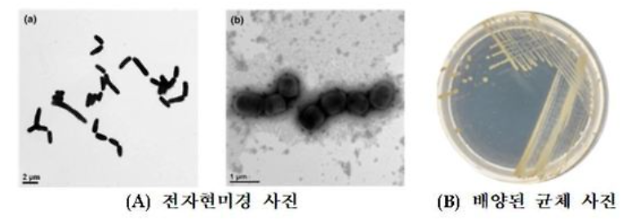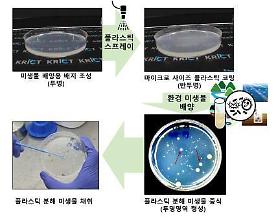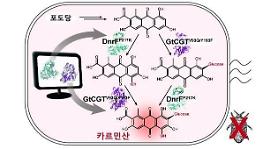
[Courtesy of NNIBR]
Oxybenzone provides broad-spectrum ultraviolet coverage. When used at high concentrations, it irritates and damages the skin and eyes, limiting the blending limit. There have been studies that linked coral damage to oxybenzone exposure. Palau and some other countries restrict the use of sunscreen products that contain oxybenzone to protect marine ecosystems.
In a river stream around an industrial complex in the western port city of Incheon, researchers from the Nakdonggang National Institute of Biological Resources (NNIBR) and Chung-Ang University have found a facultative anaerobic microorganism from Rhodococcus that decomposes oxybenzone. Rhodococcus is a genus of aerobic, nonsporulating, nonmotile Gram-positive bacteria found in a broad range of environments.
Researchers have identified how the microorganism named "Rhodococcus oxybenzonivorans" decomposes oxybenzone. It can completely remove 100 milligrams of oxybenzone in one liter of fresh water within 10 days, but more than 90 percent has been removed in three days. No harmful by-products were produced during decomposition.
Copyright ⓒ Aju Press All rights reserved.



